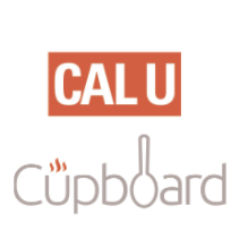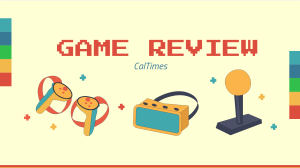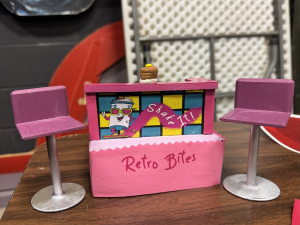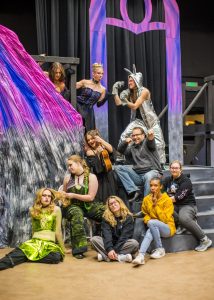Cal U Cupboard hopes to end hunger on campus

September 26, 2017
In the spring of 2015, Diane Hasbrouck noticed that California University of Pennsylvania was lacking a student–run food pantry.
She sought out to create one in the office of the Center for Volunteer Programs and Service Learning in the Natali Student Center.
“Through word of mouth from people on campus we kept hearing that there were numerous students who were having trouble buying their own food,” Hasbrouck said. “The only option at that time was going to the local food bank in town, where a lot of students volunteer. Some students would have to go through the line where their own peers were handing out food. So it was a problem, and I thought people would benefit more from having the service on campus.”
After doing some research and reaching out to the College and University Food Bank Alliance, a group dedicated to ending hunger on college campuses, Hasbrouck proposed her idea for a campus food bank that students could use to her supervisor and the university president and both were behind the idea.
Then, the Cal U Cupboard was born.
She required no budget since the food pantry would be run entirely by donations from faculty and staff.
“When we started we worked privately with people on campus, asking for donations and spreading the word about it through referrals,” Hasbrouck said. “But in 2016 we promoted it and asked all of campus for donations and our numbers went way up.”
This semester, Hasbrouck hopes that the Cal U Cupboard continues to grow, but that will require more donations and more people getting informed about the services they provide. Hasbrouck, the work study students in the office, and volunteers plan to do more food drives to raise supplies for students.
One upcoming event is the Hunger and Homelessness Awareness Week from Nov. 11 to 19. The events during this week aim to help educate others about the problems of poverty and hunger on campus and in the community.
Last year, they welcomed Brandon Rumbaugh, a wounded veteran who voluntarily lived on the streets of Uniontown for more than a month to raise awareness about the issues of homelessness and poverty in our region, to speak on the issue at Cal U.
What started as a simple food pantry has become a place where any student can pick up something to eat or even hygiene products that they may need, such as toothbrushes and deodorant.
“The hygiene products we started offering really take people by surprise,” Lindsey Rush, a student worker at the center for volunteer programs, said. “I think it’s important that people know we can provide these things to them without making them feel awkward. But it’s so much more than people who need food. Commuters can come and if they forget their lunch they can grab something in here instead of spending their money to eat on campus.”
The fact that anybody can use the Cal U Cupboard is something those working to keep it running want people to understand.
“When you’re in college, academics should be your top priority, not worrying about if you will be able to get something to eat today,” Hanna Schlegel, a volunteer for the program, said. “We just want people to be comfortable when they come here and they can take what they need. We ask a few logistics questions just to understand where the need is, like if they live on campus or commute, but it is totally anonymous.”
Recently, the Cal U Cupboard has started offering coupons for items may find they need but they do not offer on campus. If that’s the case, the student can come to the Cupboard and get a coupon they can use at a store so they can receive a discount.
“When I tell people about everything we have to offer, from the types of food we get to the hygiene products and the coupons, they can’t believe it,” Amanda Andrews, who also works in volunteer center, said. “It’s all about helping people any way we can and to do that we have to tell others and spread the word.”
Looking forward, Hasbrouck says that the Cal U Cupboard has a lot of work to do, but also the potential to make real change on the campus.
“I hope one day that it isn’t needed,” Hasbrouck said. “But until then we will continue to work to provide resources to students who need help and try to make sure others get involved, too. It’s sad to have to go through it but we have to break down the barriers so that we can help those in need.”




